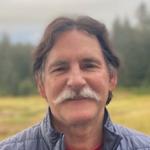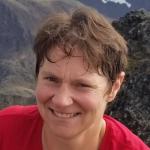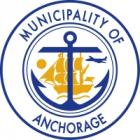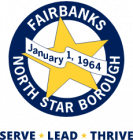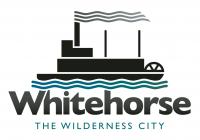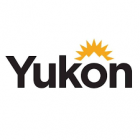Arctic Urban Risks and Adaptations (AURA): a co-production framework for addressing multiple changing environmental hazards
Navigating the New Arctic (NNA) is one of NSF's 10 Big Ideas. NNA projects address convergence scientific challenges in the rapidly changing Arctic. The Arctic research is needed to inform the economy, security and resilience of the Nation, the larger region and the globe. NNA empowers new research partnerships from local to international scales, diversifies the next generation of Arctic researchers, and integrates the co-production of knowledge. This award fulfills part of that aim.
Climate change is increasing vulnerability of Arctic urban communities to natural hazards such as unstable permafrost, wildfire, and rain-in-winter events. These hazards put residents and property at risk and impose economic costs, and households, businesses, and governments must adapt to these interacting hazards. This research is developing detailed maps showing how the occurrence of these three natural hazards has evolved simultaneously in the Municipality of Anchorage and the Fairbanks North Star Borough, Alaska, and Whitehorse, Yukon, Canada over the past several decades, and how they might change over the next 40 years. The interdisciplinary research team of economists; permafrost, fire, weather, climate, and environmental scientists; and policy experts conducts transdisciplinary research on Arctic natural hazards and their impacts on the natural and built environments and society. The research team works closely with local governments and non-governmental organizations (NGOs), Indigenous groups, insurance companies, and residents to co-produce knowledge on the costs, risks, and actions taken to mitigate and adapt to these hazards. The team and stakeholders collaborate to determine optimal ways to measure the effects of hazards on society and the built environment, identify trade-offs and interactions, develop a multiple-hazard risk assessment, and generate options for future adaptive planning. This project is one of the first to include effects of climate change on private as well as public infrastructure, a gap which has limited the understanding of effects of climate change in Alaska. Results provide a framework that other Arctic communities can use to assess risks and reduce economic damages due to climate change and provide examples to increase resilience.
Research activities over four years include: (1) spatial modeling and mapping of natural hazards and their interactions; (2) gathering data to assess perceived risks, values at risk, and adaptation costs with interviews, property owner surveys, and citizen science; (3) economic modeling of costs and risks; and (4) developing in a series of scenario planning workshops an adaptive policy framework that can be used to adapt to and mitigate multiple hazards and reduce future costs and risks. The research helps partner communities make better-informed decisions regarding how and where to build and manage public and private infrastructure and finance public services. This framework can be used by other Arctic communities to assess risks and reduce economic damages due to climate change.
This award reflects NSF's statutory mission and has been deemed worthy of support through evaluation using the Foundation's intellectual merit and broader impacts review criteria.
This collaborative project between Schmidt (1927563, LEAD, UAA), Nicolsky (1927537, UAF) and Powell (1927312, UAS) will conduct research on arctic natural hazards and their impacts on the natural and built environments and society. Researchers will hold numerous workshops and work with a variety of stakeholders to understand the hazards, as well as provide actions and mitigations to adapt to these hazards. In each year from 2020-2024, a field team of six will travel to Fairbanks and Anchorage to conduct workshops, interviews, team meetings, and participatory scenario planning in each location. Once per year a field team of 2-3 will travel to Whitehorse, Canada to attend a workshop for stakeholders and to install and maintain permafrost sensors. In summary there will be 15 workshops over the 4-year project period: in Fairbanks, Anchorage and Whitehorse, one workshop in years 1, 2, and 4 and two workshops in year 3 with annual workshops in Fairbanks: The first year workshop will be used to introduce the project, discuss hazards and potential mitigation. The second-year workshop will be used to review hazard maps, present the results from the homeowner surveys, and begin discussing trade-offs. The two workshops in year 3 will develop scenarios, present the multiple risk models, and discuss an adaptive policy framework. In year 4 the workshop will present future scenarios and an adaptive policy framework. In addition, in all years, researchers will meet with local governments, non-governmental organizations (NGOs), Indigenous groups, and residents. Other meetings will be held to gather data and scoping for homeowner surveys, and permafrost hazard. A subaward is included to Sustainable Earth Research, LCC for conducting water quality monitoring to determine how different road/parking lot treatments are used to combat icing in winter influence water quality.
Season Field Sites
2019 Alaska - Anchorage (virtual)
2019 Alaska - Fairbanks (virtual)
2019 Canada - Whitehorse (virtual)
2020 Alaska - Anchorage (virtual)
2020 Alaska - Fairbanks (virtual)
2020 Canada - Whitehorse (virtual)
2021 Alaska - Anchorage (virtual)
2021 Alaska - Fairbanks (in person)
2021 Canada - Whitehorse (in person)
2022 Alaska - Anchorage
2022 Alaska - Fairbanks
2022 Canada - Whitehorse
2023 Alaska - Anchorage (Possible Extension)
2023 Alaska - Fairbanks (Possible Extension)
2023 Canada - Whitehorse (Possible Extension)
Resources
NNA Project Update Report for Arctic Urban Risks and Adaptations (AURA)
Climate change is increasing vulnerability of arctic urban communities to natural hazards such as unstable permafrost, wildfire, and rain-in-winter events. These hazards put residents and property at risk and impose economic costs. Households, businesses, and governments must adapt to these multiple co-occurring hazards, which may have compound or off-setting interactions.
Collaborative Research - Arctic Urban Risks and Adaptations (AURA)- a Co-Production Framework for Addressing Multiple Changing Environmental Hazards
NNA project update video produced for the April 2020 virtual NNA Investigators meeting.
Publications
Liew, M., M. Xiao, L. Farquharson, D. Nicolsky, A. Jensen, V. Romanovsky, J. Peirce, L. Alessa, C. McComb, X. Zhang, and B. Jones, 2022: Understanding Effects of Permafrost Degradation and Coastal Erosion on Civil Infrastructure in Arctic Coastal Villages: A Community Survey and Knowledge Co-Production, Journal of Marine Science and Engineering, 10(3), https://doi.org/10.3390/jmse10030422.

